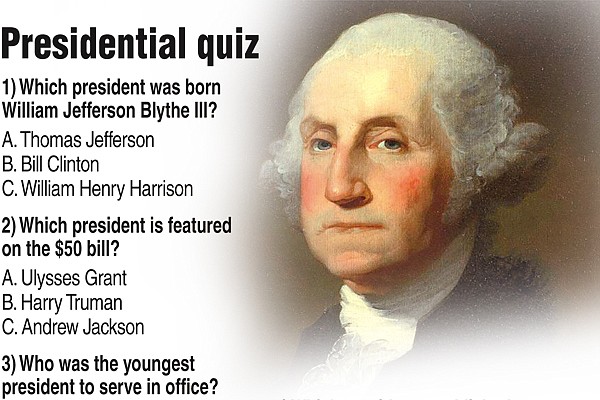Ever the history teacher, Hixson Middle School assistant principal George Hamrick thought of a challenging assignment for those looking to honor America's 44 presidents today.
"Even the dullest of them -- even Millard Fillmore -- might have a redeeming story if we searched it out," he said. "That could be the challenge to us all -- to read about Millard Fillmore on this Presidents Day. If you could find anything."
Today is Presidents Day, set aside to honor American presidents. But students see the federal holiday as time off from school more than anything.
One student blames that sentiment on educators who lack the ability to enliven presidential history.
"With the presidents, it can be too structured in school," said Kelsey Lowry, a pre-physical therapy major at the University of Tennessee at Chattanooga. "Some teachers make it about memorization, basic facts and that's all. You learn one contribution the less-popular ones made to America -- maybe."
With a 17-year tenure teaching Advanced Placement American history at Red Bank High School behind him, Mr. Hamrick said he understands these concerns. Student apathy can be a direct result of emphasizing dates and documents, he said.
If he taught the presidents that way while he was teaching, "these characters would have become very dull, very quick," he said.
"It's important to realize that all these presidents were human beings with the qualities and the traits of human beings," he said. "We have our moments of triumph, our moments of despair, our moments of knuckleheadedness and foolishness. They have theirs, also."
Mr. Hamrick said using humorous anecdotes and context can grasp an otherwise reluctant student's attention.
"When we take presidents and turn them into something other than the policymaker, it appeals to us a lot more," he said.
A 2009 graduate of Red Bank High School believes the Oval Office occupiers themselves are responsible for a lack of presidential interest.
"Part of the blame lies with the presidents," Laren Reed said. "If they tried to get teens more involved with government, I think we'd care more about them."
She said role-playing was one way she learned the inner workings of Washington, D.C., in high school.
"My government teacher was the only one who got me interested in government," Ms. Reed said. "She had us actually doing things that presidents do instead of teaching us basic information."
Sequatchie County High School history teacher Henry Camp said keeping his students interested is a continual learning process and one he relishes in his 39th year of teaching.
"What I've always tried to do is make myself a better teacher," he said. "I find myself going back to primary sources. You want students to say, 'It's like you knew them.'
"I try to have them understand these men were not gods. They had problems and trials like we have every day, but some of them rose above that," he said. "This helps us relate to them as people -- it's good to use a lot of stories about their lives and background."


